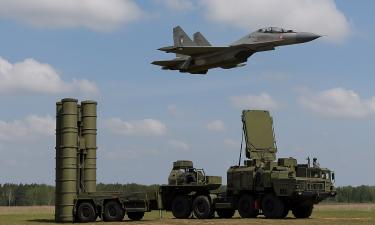Canadian Everest climber honored in Nepal for saving woman
A Canadian who saved a sick climber risking her own life near the summit of Mount Everest was honored Monday by Nepal's mountaineering community.
Meagan McGrath, 29, of Sudbury, Ontario, was honored for saving Usha Bista, a female climber from Nepal who had fallen sick on the way to the summit on May 21.
McGrath, an aerospace engineer with the Canadian Air Force, was coming down after scaling the 8,850-meter (29,035-foot) mountain when she came across Bista, who was suffering from cerebral edema, or swelling of the brain, which can be fatal if left untreated at a high altitude.
She flew Monday to Katmandu, where she was honored by the president of the Nepal Mountaineering Association, Ang Tshering, who called her a hero for saving Bista's life. She was given bouquets and yellow scarfs used for special occasions.
McGrath said she thought Bista was going to die when she found her barely conscious and leaning on the snowy slopes at an altitude of about 8,300 meters (27,225 feet).
"I saved her life but she was also dying in my hands too. It was a very tenuous situation. I did not have everything I needed to help her," McGrath told The Associated Press.
"Her condition was deteriorating to a point where I was very concerned that she would die."
McGrath was the first to come across Bista on the snowy trail and was then joined by another Western man and his Sherpa guide. They called other climbers for help.
Several climbers already at the last camp, South Col - at 8,000 meters (26,240 feet) - rushed to help, calling doctors at a lower camp for advice on immediate treatment. They wrapped her in a sleeping bag, tied her to a sled and dragged her down.
"I am glad I was the one person who started the chain I suppose, but I am glad someone jumped in," McGrath said.
"As we brought her down she was deteriorating," she said. "She started to became less conscious to the point of mumbling."
Bista has recovered, but is being treated for frostbitten fingers and toes.
In an interview on Sunday, Bista said her rescuers were like gods to her who saved her from Mount Everest's "death zone."
"I am indebted to these people for life. I can't believe the love and concern they showed to rescue me in spite of such a difficult situation," Bista said.
The final and most difficult part of the Everest climb - the area above the South Col - is nicknamed the "death zone." Rescues at that altitude are difficult because of the thin air, high winds, treacherous icy slopes and exhaustion.
Climbers afflicted with high altitude cerebral edema - a sudden, potentially fatal swelling of the brain - display confusion, hallucinations and semiconsciousness and need to descend immediately and receive oxygen and medication.
Subscribe to Pravda.Ru Telegram channel, Facebook, RSS!





